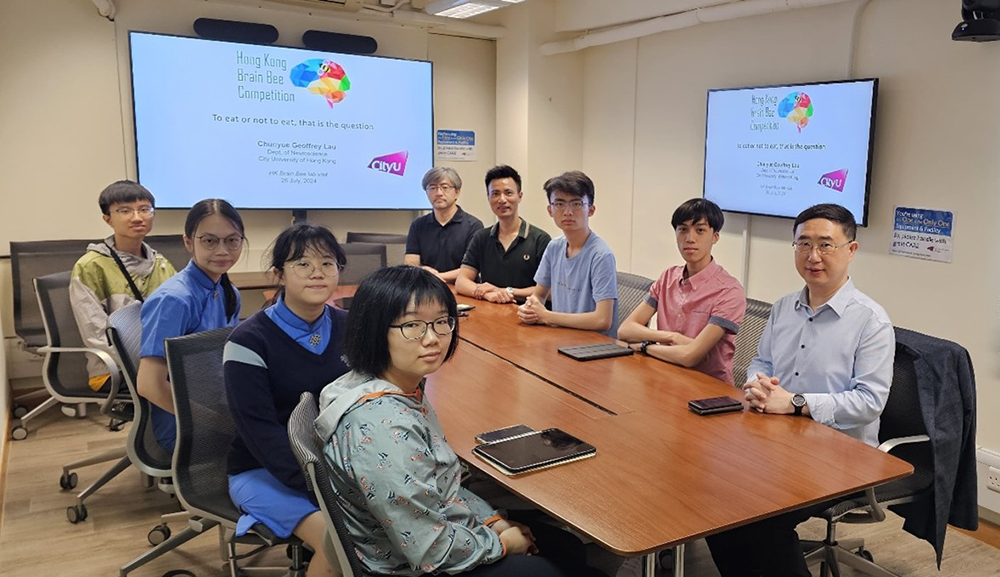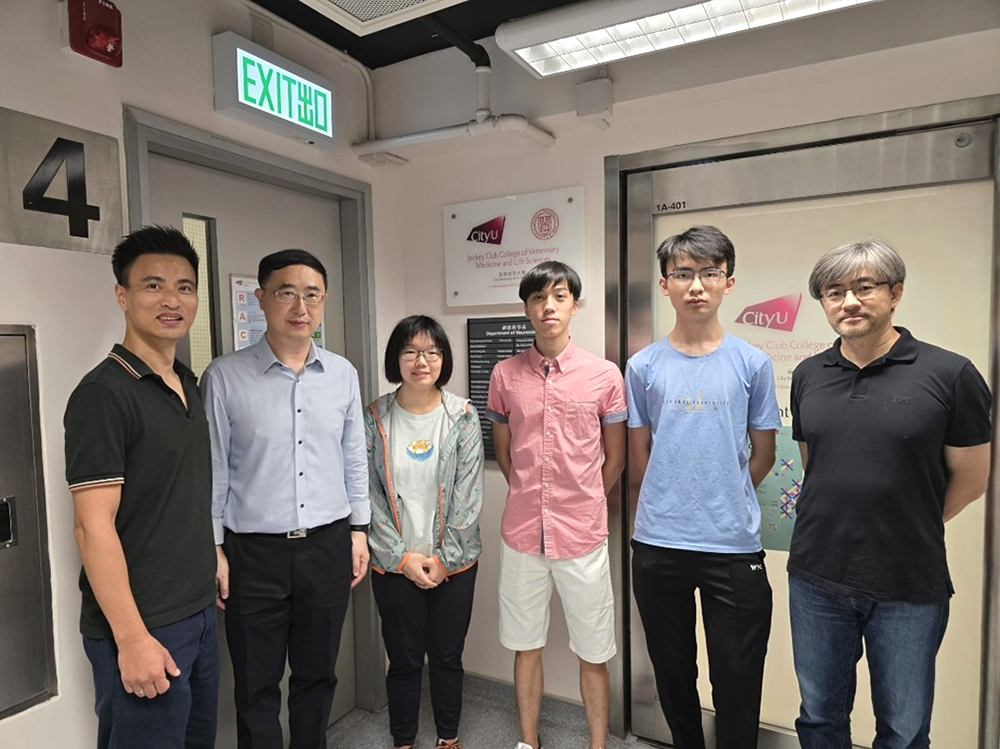

The Department of Neuroscience (NS) at City University of Hong Kong (CityUHK) is committed to sharing the latest advance in brain research with the bright minds of our next generation. On 26 July 2024, NS co-hosted a lab visit for the finalists of the Hong Kong Brain Bee Competition 2024 with Dr Michael Lee, Chairman of the Hong Kong Brain Foundation (HKBF) and Honorary Clinical Associate Professor at the Chinese University of Hong Kong, to share the latest in neurobehavior research and quantitative analysis. The theme of the laboratory visit was “To eat or not to eat, that is the question”. Professor Geoffrey C. Y. Lau and his graduate student introduced the different experimental approaches to mouse olfactory behavior. The student participants learnt how to visually quantify the amount of time a mouse spends on exploring or eating a familiar vs. novel food. In Professor Qiang Liu’s laboratory, the Brain Bee finalists learnt how to transfer the tiny C. elegans worms (less than 2 mm long) from one dish to another. They also learned how to place the worms at various distances from the food source (bacteria) and measure how long it takes the worms to travel toward it.
The Hong Kong Brain Bee Competition is an annual event organised by the HKBF, which tests the knowledge of secondary school students on various aspects of the nervous system, including neuroanatomy, neurohistology and neurology of different disorders. The competition this year attracted more than 200 students from 21 schools to participate, from which 7 top students were selected for the Final Contest. The champion will represent Hong Kong in the Brain Bee World Championship which participants from more than 50 countries worldwide compete against each other. Following the mission of the International Brain Bee (IBB), HKBF holds the Hong Kong Brain Bee Competition with the aim to motivate high school students to study the brain, and to inspire them to consider careers related to neuroscience and therapies for neurological dysfunction. NS looks forward to more collaborations with the HKBF and organizing more laboratory visits to inspire our future neuroscientists.
